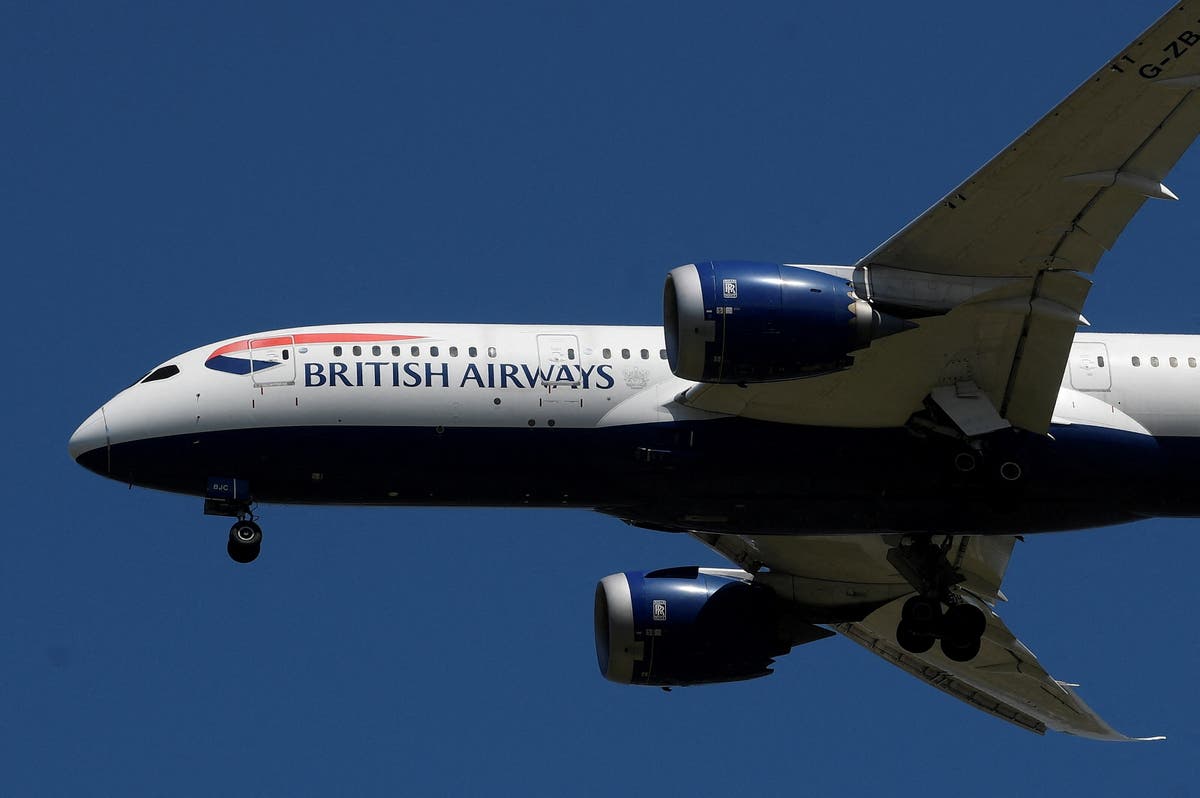‘Once bitten, twice shy’: Mick Lynch says rail strikes won’t be suspended after meeting transport secretary
‘We called the strikes off two weeks ago, we gave a two-week period - it’s gone past that now,’ says union boss

Sign up to Simon Calder’s free travel email for weekly expert advice and money-saving discounts
Get Simon Calder’s Travel email
Mick Lynch, general secretary of the RMT union, has hinted that the upcoming train strikes won’t be called off after he met with the new transport secretary.
Arriving at the Department for Transport (DfT) HQ in central London at 11.30am this morning, Mr Lynch said that he was expecting a “constructive meeting”.
However, following the meeting with Mark Harper, he rejected an invitation to call off the eight days of walk-outs announced for December and January that are currently planned.
Asked if the RMT would call off the strikes before Christmas, he said: “Well, we called the strikes off two weeks ago, we gave a two-week period - it’s gone past that now, it’s nearly two and a half weeks - where we were told we would get a tangible outcome, we would get commitments and proposals. We’ve got none of that.
“So, you know, once bitten, twice shy, in that sense.”
On Monday Mr Lynch accused Mr Harper of preventing a settlement to the dispute by the train operators, represented by the Rail Delivery Group (RDG). The union leader said a meeting at which firm proposals were to be tabled by the employers was called off at 55 minutes’ notice.
The RMT boss said on Thursday afternoon had seen an end to “the bellicose nonsense we had” with the last-but-one transport secretary, Grant Shapps and said that “a dialogue” had begun with Mr Harper.
“We want him to set down in writing the mechanics of how a settlement is going to be accomplished,” Mr Lynch said.
“We’ve got a situation where 14 train operators have said they can’t negotiate.
“I’ve asked him to create a liaison forum at ministerial level.
“We need pace in these negotiations. I’m sure the travelling public and the businesses around the country and the economy want to see this dispute settled in a proper way.”
Mr Lynch said he would not call off the strikes planned for December and January.
But he said a meeting with Network Rail would take place on Friday morning and would talk to the Rail Delivery Group – representing train operators – as soon as possible.
After the meeting the transport secretary said:”We had an open and honest conversation about the serious challenges facing the railways.
“We have common ground – we both want the dispute to end and we both want a thriving railway which delivers for passengers and workers alike.
“To achieve this though, we need to work together, across the entire industry to ensure our railway industry thrives.
“There is a deal to be done, and I believe we will get there.
“ I want to facilitate the RMT and the employers to reach an agreement and end the dispute for the benefit of the travelling public.”
As things stand, the RMT’s planned industrial action will hit passengers before Christmas and after the New Year, with four blocks of 48-hour strikes.
The stoppages are separate to this Saturday’s strike by train driver members of the Aslef union, who are stopping work for 11 train operators.
The RDG warned passengers: “Train services will be severely disrupted on Saturday 26 November due to a walkout by drivers at 11 train companies.
“Passengers should only travel by train if necessary and should check their journey in advance, and expect some disruption on Sunday with a reduced timetable in operation.
Daniel Mann, director of industry operations at the Rail Delivery Group, said: “The strike by Aslef brings more uncertainty for passengers and businesses by disrupting their weekend plans.”
The meeting between the RMT leader and the transport secretary comes as Office for Rail and Road figures reveal the scale of collapse of passenger numbers during the coronavirus pandemic.
In the 12 months between April 2021 and March 2022, the number of travellers using London Waterloo – the busiest station in Britain – was less than half the pre-pandemic level.

 Aliver
Aliver 






























